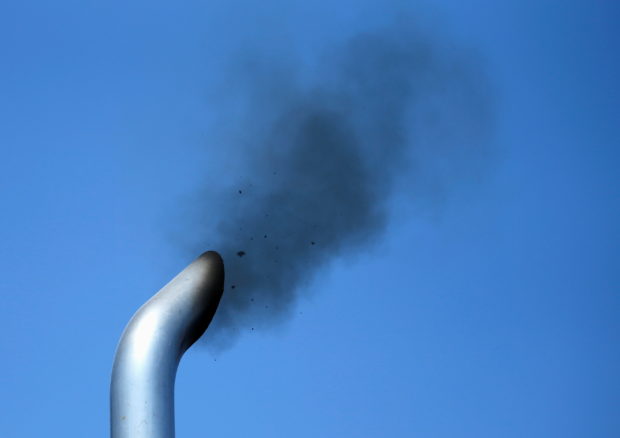U.N. says world likely to miss climate targets despite COVID pause in emissions
ZURICH – The pace of climate change has not been slowed by the global COVID-19 pandemic and the world remains behind in its battle to cut carbon emissions, the United Nations said on Thursday.
The virus-related economic downturn caused only a temporary downturn in CO2 emissions last year and it was not enough to reverse rising levels of greenhouse gases in the atmosphere, the World Meteorological Organization (WMO) said.
“There was some thinking that the COVID lockdowns would have had a positive impact on the (…) atmosphere, which is not the case,” WMO Secretary-General Petteri Taalas said at a news briefing.
The world in 2021 was missing the mark of building back sustainably from the COVID-19 crisis and “not going in the right direction,” Taalas said.
Reduction targets for emissions are not being met and there is a rising likelihood the world will miss its Paris Agreement aim of reducing global warming to 1.5 degrees Celsius above pre-industrial levels, the WMO said in its United in Science 2021 Report.
Article continues after this advertisement“This is a critical year for climate action,” U.N. Secretary-General Antonio Guterres said in a statement, and the results were an “alarming appraisal of just how far off course we are.”
Article continues after this advertisement“This year has seen fossil fuel emissions bounce back, greenhouse gas concentrations continuing to rise and severe human-enhanced weather events that have affected health, lives and livelihoods on every continent,” he said.
Concentrations in the atmosphere of the major greenhouse gases – CO2, methane and nitrous oxide – continued to increase in 2020 and the first half of 2021, the U.N. said.
The average global temperature for the past five years was among the highest on record, estimated at 1.06C to 1.26C above pre-industrial levels.
There is now a 40% chance that the average global temperature in one of the next five years will be at least 1.5C warmer than pre-industrial levels, the report said.
“Unless there are immediate, rapid and large-scale reductions in greenhouse gas emissions, limiting warming to 1.5C will be impossible, with catastrophic consequences for people and the planet on which we depend,” Guterres said.
The United in Science 2021 report presents the latest scientific data and findings related to climate change.
WMO’s Taalas compared the dramatic upsets to daily life caused by the COVID-19 pandemic to the more moderate changes required to mitigate climate change and stave off much more dire consequences.
“If we fail at climate mitigation, we would have a permanent problem for at least hundreds or even thousands of years,” he said. “The…economic, human wellbeing effects would be much more dramatic than this COVID pandemic.”
gsg
For more news about the novel coronavirus click here.
What you need to know about Coronavirus.
For more information on COVID-19, call the DOH Hotline: (02) 86517800 local 1149/1150.
The Inquirer Foundation supports our healthcare frontliners and is still accepting cash donations to be deposited at Banco de Oro (BDO) current account #007960018860 or donate through PayMaya using this link.
